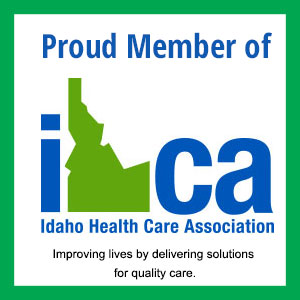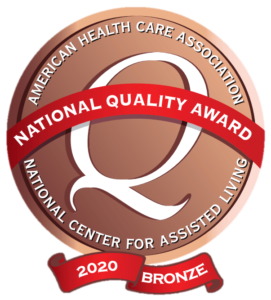
June is Alzheimer’s and brain awareness month, which is near and dear to many long-term care providers‘ hearts. Every day their team members have the opportunity to care for individuals who have been diagnosed with Alzheimer’s and other cognitive impairments. Every day these providers are striving to educate and learn more about brain health and implement strategies that could help their residents and patients. In order to raise awareness concerning Alzheimer’s disease and brain health we must first understand what it is, and what are some things that people can do to improve their brain health. Let’s find out.
What is Alzheimer’s disease?
Alzheimer’s disease is a progressive neurodegenerative disorder characterized by a gradual decline in cognitive function, memory, and the ability to perform daily activities. Alzheimer’s disease is associated with the buildup of abnormal protein deposits in the brain, including amyloid plaques and neurofibrillary tangles. Amyloid plaques are clusters of protein fragments called beta-amyloid that accumulate between nerve cells. Neurofibrillary tangles are twisted fibers of another protein called tau that build up inside cells. Some common characteristics of Alzheimer’s disease include memory loss, cognitive decline, language problems, disorientation, behavioral changes, and functional decline. There is no cure for Alzheimer’s disease. It is the most common cause of dementia among older adults.
Alzheimer’s disease greatly affects society and its impact is ever reaching. According to the Alzheimer’s Association:
- Approximately 6.7 million Americans that are over the age of 65 are living with it.
- Two-thirds of Americans who suffer from Alzheimer’s disease are women.
- Over 33% of seniors die with Alzheimer’s disease or some other form of dementia.
- Total payment for individuals receiving care for Alzheimer’s or other dementias is approximately $345 billion per year.
Although there is no cure for Alzheimer’s disease, there are things that people can do to help manage the symptoms and enhance their brain health.
How can people help manage symptoms and enhance their brain health?
Research treatments regarding Alzheimer’s are ongoing. There are certain steps that can be taken to help manage symptoms and enhance brain health. These include medications, supportive care, and lifestyle changes. Cholinesterase inhibitors and memantine medications may help with memory and cognitive symptoms. Behavioral strategies, therapy, and support for caregivers can assist in providing supportive care. Lifestyle changes such as a healthy diet, physical activity, and mental exercises may help slow progression and improve cognition. It is common to wonder what specific lifestyle changes a person can do. Here are some examples.
Healthy Diet
The Mediterranean diet is often cited as one of the best for brain health. It emphasizes:
- Fruits and vegetables that are high in antioxidants and essential vitamins.
- Whole grains that provide steady energy and are high in fiber.
- Healthy fats such as olive oil, nuts, and seeds that are rich in monounsaturated fats.
- Fish such as salmon, mackerel, and sardines, which are high in omega-3 fatty acids.
- Legumes such as beans and lentils that provide protein and fiber.
Physical Activity
Physical activity is crucial for maintaining and improving brain health. Here are several types of physical activities that are particularly beneficial:
- Brisk walking for 30 minutes a day.
- Intense aerobic exercise such as running.
- Low impact, heart-pumping activities such as cycling.
- Aerobic exercise with muscle toning such as swimming.
- Strength training such as free weights, weight machines, resistance bands, or bodyweight exercises.
- Flexibility and balance exercises such as yoga, tai chi, and pilates.
Mental Exercises
Engaging in mental exercises is an excellent way to enhance brain health and cognitive function. Here are some activities and exercises that are particularly effective:
- Jigsaw puzzles, crosswords, sudoku and other types of puzzles that challenge the brain.
- Brain training apps such as Lumosity, BrainHQ, and other programs that enhance memory, attention, and cognition.
- Learning a new language.
- Playing a musical instrument.
- Reading and writing regularly.
- Playing strategy games such as chess, Settlers of Catan, bridge, and solitaire.
- Martial arts such as Karate or Taekwondo.
Where do people go for support?
People seeking support for Alzheimer’s disease can access a variety of resources, organizations, and services designed to help patients, caregivers, and families. These can include:
- Alzheimer’s associations and organizations such as the Alzheimer’s association and Dementia Friends.
- Government and public health services that include the National Institute on Aging (NIA) and Center for Disease Control and Prevention (CDC).
- Local support services such as the Area Agencies on Aging, community centers, and health departments.
- Online communities and forums such as AlzConnected, Reddit, and Alzheimer’s Association community resource finder.
- Support groups that are offered by local memory care providers.
- Educational resources such as books, guides, workshops, and seminars.
- Professional care services such as geriatric care managers and memory care facilities.
The more you know, the more empowered you are
Millions are impacted by the effects of Alzheimer’s disease every day. It is vital that people understand what it is, how they can face it, and what we can do to enhance brain health. After all, the more people know, the more empowered they become. Raising awareness about Alzheimer’s disease is not just about understanding a medical condition; it’s about fostering a compassionate community that supports those affected, promotes research, and works towards a future free of this devastating disease.
Let Us Help You Today!
We welcome the opportunity to speak with you about careers at The Cottages and the care that our residents receive at our Idaho locations. We are experts in assisted living, memory care, respite, adult day care, and have been serving seniors for over 20 years. Our small home-like senior living homes and specially-trained team members offer an atmosphere that promotes the well-being of your loved one.
If you have any questions, would like to tour one of the Idaho assisted living or memory care homes, or speak with one of our licensed administrators, please fill out the form below. Please mention which location(s) you’re interested in.



